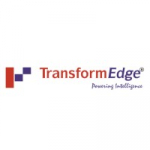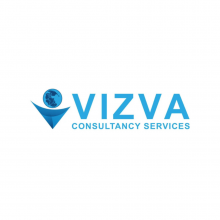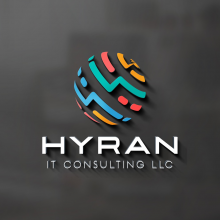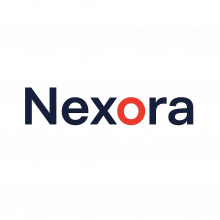Explore Top Help desk Companies in United States
Use the advanced filter to find companies near you or refine the results Last updated in: December, 2025
End to End Cloud ERP Implementations , Integrations and AI Driven Process Automation Specialist, ERP Focused Agentic AI Consulting Solutions Provider
Trusted IT staffing agency and business consulting services provider to help businesses, attract top talent, and achieve sustainable growth.
We empower businesses with reliable and secure IT solutions. Managed services that keep our clients connected and prepared for the future.
37SOLUTIONS, LLC provides website hosting, email hosting, website design & management, WordPress maintenance & management, SEO, PPC, and SMM.
Services:

Nashville, United States Head office in: India
One-stop hiring: Pre-vetted domain experts, time-zone aligned, onboarded in 48h to blend seamlessly with your team
Services:
Your Consultancy Partner for Growth.
ServerClub is a global IT solutions provider offering web hosting, cloud services, and domain registration with reliable support and performance.
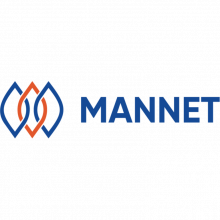
Chantilly, United States Head office in: Vietnam
ManNet, a vibrant LTS Group subsidiary specializing in talent acquisition, IT staff augmentation, headhunting and body shopping services.

Delaware, United States Head office in: United Arab Emirates
Staqo is a CMMI Level 3 certified tech company delivering custom software, mobile apps, and enterprise solutions with modern UX.
We help you connect with your customers. We are professional web designers and developers.
Services:
HostingSource is a leading hosting provider, offering reliable, scalable solutions for customers of all sizes and services.
Services:
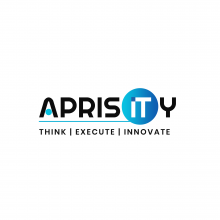
Aprisity Technologies Verified Company
Lancaster, United States Head office in: India
Aprisity Technologies is a global IT services and consulting Company offering Digital Transformation, Product Development, and AI & IT solutions.
Simplifying your technology. Amplifying your business.
Services:
Skillsquared INC is a premier digital development company, specializing in website & mobile app development, CRM solutions, and digital marketing.

Hashe Computer Solutions (Pvt) Ltd. Verified Company
Indianapolis, United States Head office in: Pakistan
Hashe Computer Solutions: Delivering bespoke, cutting-edge IT and software services to propel tech giants towards transformative success.
Unlock the full potential of your Microsoft Power Platform and Dynamics 365 CRM to drive meaningful results and exceed your business goals.

RabIT Solutions Verified Company
Santa Monica, United States Head office in: Hungary
RabIT is a dynamic and innovative software engineering company with offices in Santa Monica, California and in Budapest, Szeged and Pécs, Hungary.

Aquilum Wave Technologies Verified Company
Tampa, United States Head office in: Albania
Aquilum Wave Technologies pioneers cutting-edge solutions in wave energy and maritime innovation.
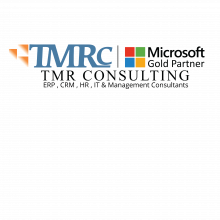
TMR Consulting Verified Company
Michigan City, United States Head office in: Pakistan
TMR Consulting Microsoft Gold Partner Tier 1 CSP in implementing Microsoft Business Solutions and Microsoft licensing.
Nexora provides secure, modern IT management, cloud solutions, and endpoint support for growing businesses.
Software.Staffing.Accounting

RapidBrains by Hashroot Verified Company
Delaware, United States Head office in: India
RapidBrains is a leading talent marketplace built to help startups streamline their hiring process by connecting them with top freelance developers
Services:
We are a dynamic software company committed to crafting innovative solutions that empower businesses to thrive in the digital age.
ENCS Helping World with AI, IOB, DT & Analytics in 2023-24.
Services:
Filter Help desk Companies in United States by Cities
Find the right tech company near you or from a specific city. Some of the best companies might be located in smaller cities.
Find more Help desk companies around the world
TechBehemoths is the world's most advanced and user-friendly platform to match IT Companies with real clients without hustle.
ICT in the United States: General Profile and Insights
The United States has probably the most advanced software and information technology (IT) services industry in the world. More than 40 percent of the $5 trillion global IT market is in North America, primarily the United States. The industry accounts for $2.1 trillion of U.S. value-added GDP (more than 10 percent of the national economy) and 702.276 jobs. According to CompTIA, there are more than 700,000 software and IT services companies in the United States.
The average net salary of a web developer in the US is around $82,532 annually. On the other hand, the hourly rate is nearly $33.47, which makes it one of the best-paid jobs in the world within the IT industry.
Why Should You Work With American Web & Software Development Companies
U.S. software development companies operate in a mature, harmonized market and have a reputation for producing reliable and effective solutions that quickly accelerate to the marketplace. International companies in the industry have shown interest in the U.S. market because of its strong intellectual property rights laws and enforcement. U.S. companies lead the world's packaged and custom-software markets and are competitive in nearly all other market segments with a stable overseas market share.
What You Should Be Aware of When Working With a US-based ICT Company
Having a large IT market has both advantages and disadvantages. While offering a wider variety of US IT companies to choose from is one of the biggest advantages the U.S. has to offer, the challenge for potential clients and partners of the U.S.-based web & IT companies is that the industry development is not equally distributed across all states and cities. For example, many tech companies are relocating to Texas from Silicon Valley. This is why it’s good to have in mind the most important U.S. IT hubs and focus on choosing the most suitable one depending on your needs.
How Reliable are US-based IT Companies
Based on a report delivered by CompTIA in 2020, which is still relevant for 2025, the changes in the global IT market that make competition in this area tougher, U.S. companies will focus more on three development pillars:
- Training and Certification of professionals in their existing tech skills
- Training and Certification of professionals in new tech skills
- Career growth and project management.
This means that the market is saturated with the workforce, and there is a small probability that companies will increase their hiring rate for new professionals. However, intensive and extensive skills development of U.S. tech professionals will increase the capacity and attractiveness of U.S. IT companies and web agencies. Additionally, this will improve the already well-developed abilities to deliver high-end products and services in the IT field.
How Does the US IT Industry Relate to the Neighboring Countries
Considering that the US has probably the most developed IT infrastructure, the industry will keep its position for at least 3 years. On the other hand, the rising numbers of IT companies from Canada and Mexico come in contrast with what US companies have to offer. In other words, clients still have to choose between US companies and neighboring countries as the offers differ in quality and ways of executing projects.
Overall, the US IT industry is in leading positions in different sectors, and combined with an authentic business culture, will probably continue to keep its attractiveness. Although companies from the U.S. are flexible and are always adjusting to market requirements, the global market still remains unpredictable, which may lead to significant changes in the future.
US Tech Industry Outlook for 2025 and Beyond
The US is still leading the world with its cutting-edge technologies, despite some narratives. The expected revenue for the market of IT Services in the US is $563.94 billion by 2025, with a CAGR of 3.73% from 2025-2030, according to Statista. The biggest segment of this segment is IT Outsourcing, reaching $218.02 billion by the same year. This sector has an increased demand for solutions in cloud computing and cybersecurity services.
Artificial Intelligence will influence the tech sector in the US, with only the Generative AI contribution to GDP of $7 trillion in the next 10 years, and it can save up to $1.4 billion for the federal government.
The US is keeping its position in scientific research, graduate education, AI firms, and competitiveness. The US tech sector’s future focuses include AI, increasing cybersecurity & cloud computing.
What is Help desk and what are its benefits for your projects?
For companies seeking efficient IT support, Help Desk services provide a central point of contact for resolving technology-related issues. These services are crucial for ensuring smooth operations within organizations, as they address technical problems and answer inquiries from users.
There are lots of IT companies that specialize in providing Help Desk services, employing teams of skilled technicians and support professionals who are well-versed in resolving a wide range of IT issues. The largest companies providing help desk services count ServiceNow, Zendesk, and Atlassian's Jira Service Management. But smaller and more affordable companies can be found on the current page
Reliability is a key factor for Help Desk service providers. These companies are typically equipped with the necessary resources, expertise, and infrastructure to provide timely and effective support. However, reliability also depends on factors such as the company's experience, the competency of their support staff, and the quality of their service level agreements (SLAs).
Help Desk service providers use various tools and technologies to streamline support operations, including ticketing systems for issue tracking, remote desktop software for troubleshooting, knowledge bases for self-help resources, and customer relationship management (CRM) software for managing user interactions. Additionally, they often employ chatbots and AI-driven automation to enhance response times and efficiency.
Help Desk services are closely related to various IT support and management services, including:
-
IT Service Management (ITSM): Comprehensive solutions for managing IT services and infrastructure.
-
Managed IT Services: Outsourced IT support and management for businesses.
-
On-Site Support: Physical presence for addressing complex technical issues.
-
Remote IT Support: Remote troubleshooting and issue resolution.
-
IT Consulting: Strategic guidance for technology decision-making.
Choosing the Best IT Companies Providing Help Desk Services: Selecting the right IT company for Help Desk services involves evaluating factors such as their experience, support capabilities, adherence to industry standards, and the scalability of their solutions. Look for providers that align with your organization's specific support needs and budget constraints. Additionally, consider their responsiveness and willingness to tailor services to your requirements.
Help Desk providers are essential for various projects, including:
-
Establishing IT Support: Setting up a Help Desk service for the first time within an organization.
-
Expanding Support: Scaling support operations to accommodate a growing user base.
-
Technical Issue Resolution: Addressing critical incidents and reducing downtime.
-
IT System Deployments: Providing support during technology rollouts and migrations.
-
User Training: Offering training and guidance on technology usage.
Companies across industries can benefit from Help Desk services, including:
-
Small and Medium-sized Enterprises (SMEs): Seeking cost-effective IT support without in-house IT teams.
-
Large Enterprises: Managing complex IT ecosystems and extensive user bases.
-
Service Providers: Offering technical support as part of their service packages.
-
Education Institutions: Supporting faculty, staff, and students with technology issues.
-
Healthcare Providers: Ensuring uninterrupted access to critical medical systems.
-
E-commerce Businesses: Maintaining online store functionality and resolving customer issues.
Other Relevant Information for Help Desk Service Seekers: The cost of Help Desk services can vary significantly depending on factors such as the level of support required, the complexity of the IT environment, and the number of users. Costs are typically based on a per-user or per-device subscription model. In the US, prices can range from $20 to $100 per user per month or more, with additional costs for on-site support or extended hours of coverage. Costs in the UK and Australia may follow similar ranges but can also vary due to market conditions and service providers' offerings. It's essential to discuss pricing and SLAs with Help Desk service providers to ensure that the chosen plan aligns with your organization's needs and budget.
